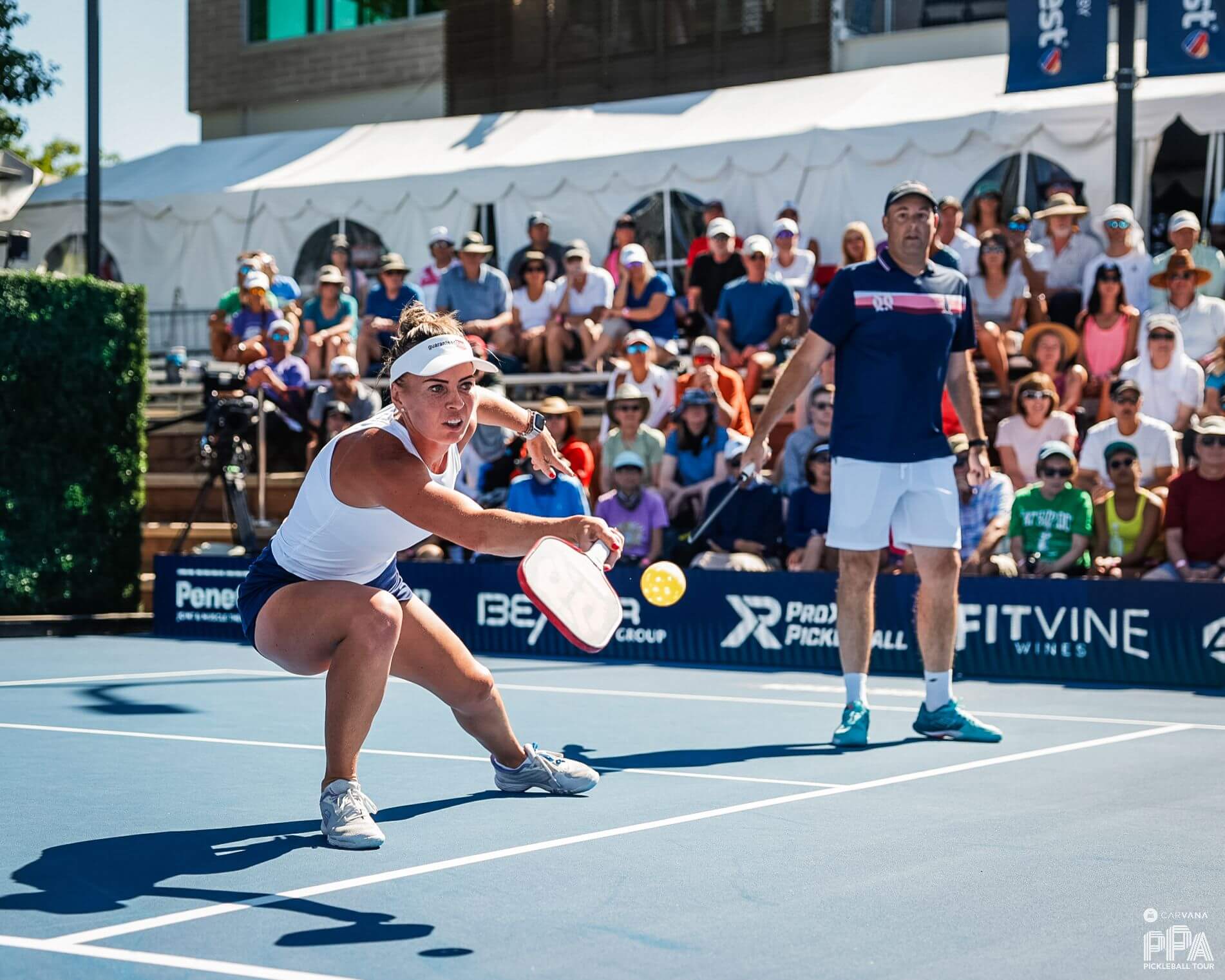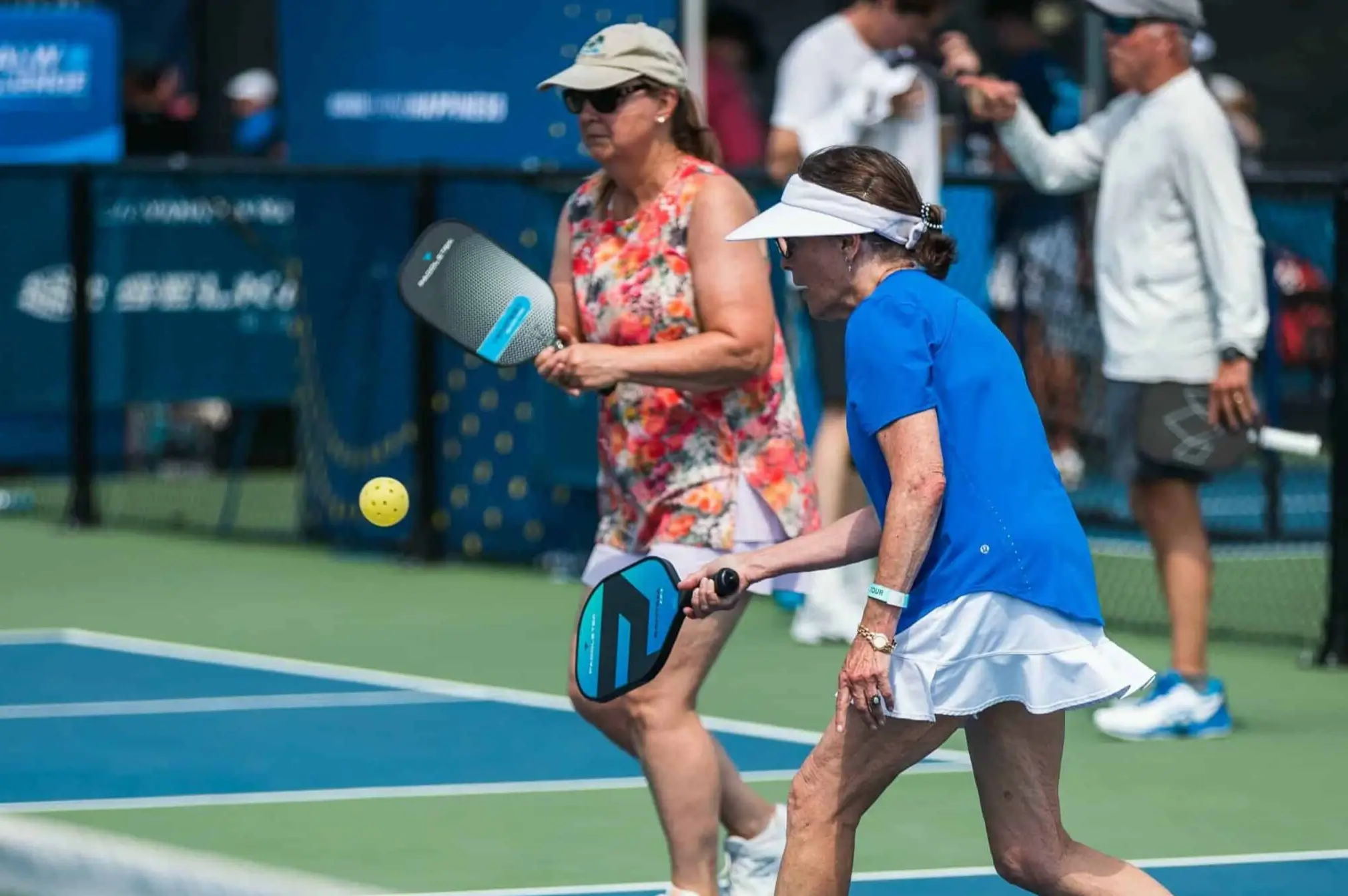Lessons with the Pros
| September 28, 2023

What’s the one thing your players want to know when you do a lesson with them?
Lindsey Newman: “It depends on the lesson or the camp I’m teaching, but I would say people want to add ‘weapons’ to their game. Also, learning how to beat the ‘bangers,’ as well as learning the third-shot drop.
A lot of people also tell me the coach ends up talking way too much. They don’t end up hitting a lot of balls and aren’t able to put their practice into actual game use.”
Allyce Jones: “They always ask how much do you drill vs. how much do you play? The answer is: 80-percent drill and 20-percent play.”
Callan Dawson: “They want to know how to get their third-shot better. I always hear how they hit lots of balls in lessons and they are working on it all the time, but in a game, it goes out the window. That’s what happens all the time, they’ll show up at a game or they’re new and they don’t want to get embarrassed, so they don’t even attempt to hit them, or maybe they miss their first one too high and the next one is into the net, so instead of losing the point on one shot, they default o hitting third-shot drives, thinking they’d rather lose that way. Most are scared of their failure. They might be a great practice drop-shot player, but can’t do it in the games.”
Lucy Kovalova: “It’s mostly shot selection, placement, and positioning. When I have higher-level of players, it’s mostly strategy, things like when to come up to the kitchen line and proper shots based on court positioning.
What’s the thing you spend the most time teaching to your students?
Newman: “Deep serves and deep returns.”
Jones: “Work on the transition area as much as you can to reset inside the Kitchen. If you are always able to get into the Kitchen after your third shot, you will be much more successful in matches.”
Kovalova: Teaching them to be watching your third-shot drop or your partner’s third-shot drop to decide when to come up to the Kitchen line. When it’s a good shot, staying low or bouncing into the Kitchen, you and your partner need to come up to the Kitchen line. When your third-shot drop or your partner’s third-shot ball is too high and your opponents have a put-away, stay back and work on the fifth, seventh or ninth shot. Eventually, when you keep the ball low enough or your ball bounces in the kitchen, your team needs to move up to the Kitchen line.”


